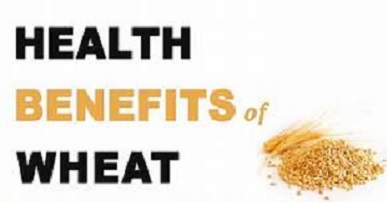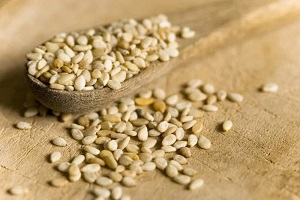Super Wheat Health Benefits, Nutrition Facts, and Side Effects
Wheat Health Benefits include its ability to control obesity, increase energy, prevent type 2 diabetes, improve metabolism, and prevent asthma and gallstones. And it also enhances digestion.
Wheat is one of the most multi-purpose grains when it comes to health and nutritional value.

It can be seen all over the world and is very easy to include in your daily diet.
Whole wheat flour is a powder made from whole wheat grains. Whole wheat flour is brown as it is gotten from the whole kernel.
It has a nutty-sweet flavor. There are two types of whole wheat flour:
- Bleached
- Unbleached
Bleached whole wheat flour is lighter in color than unbleached whole wheat flour.
You can grind wheat to get coarse or fine-textured flour according to your recipe requisite.
Aside from the starch being its main base, wheat flour also contains other substances such as gluten, polysaccharides, lipids that often affect the quality of the final product.
Table of Contents
Wheat Health Benefits: Uses of Wheat Flour
- Bread, muffins, breakfast cereal similar to wheat flakes
- Sprouted wheat berries: These can be put in vegetables and several kinds of grain salads.
- Wheat germ: Add it to bread, pastries, cakes, or yogurt for an additional nutrient punch.
- Wraps & Rotis
- Pizza & pasta
Checkout >>> Oatmeal Fufu Recipe (Nigerian Healthy Swallow)
Is Wheat Flour Same As Whole Wheat?
Whole wheat flour is obtained by grinding whole kernels. Nothing is removed from the wheat and the final product has a grainy texture with all the nutrients intact.
In contrast, regular wheat flour is derived by grinding the wheat kernel after the bran and germ are removed
Therefore, whole wheat flour is widely regarded as healthy. It is a good source of protein, fiber, and a variation of vitamins and minerals.
As it contains gluten, it is not suitable for people with celiac disease or gluten intolerance
A cereal, present in whole wheat, can contain several healthy antioxidants, for instance, alkylresorcinols and lignans.
Pointedly white flour and other refined wheat products do not have these compounds.
Wheat Benefits | Health Benefits of Wheat
- It has many health benefits such as controlling obesity, preventing type 2 diabetes, improving metabolism, reducing chronic inflammation, preventing gallstones, preventing breast cancer, promoting gastrointestinal health in females.
- It also helps protect childhood asthma, protects the body from heart disease, eliminates postmenopausal symptoms, and prevents heart attacks.
- Also, by incorporating wheat into your diet regularly, you can benefit from all the nutrients you need to provide and prevent the spread of many diseases.
- Eating enough fiber through foods, for example, whole-wheat bread can promote digestive health, better heart health, and weight control.
Wheat Meal Nutrition
Unprocessed wheat is a highly nutritious source of food. The wheat is low in fat and offers complex carbohydrates, insoluble and soluble fiber, as well as a variety of vitamins and minerals.
Related >>> Wheat Meal Swallow: Nigerian Wheat Flour Meal Fufu Recipe
Although its protein is incomplete, when you combine it with other grains, animal proteins, or legumes, it turns out to be perfect.
The nutritional value of wheat is determined by how it is processed. Whole wheat keeps its natural bran and germ, and thus retains a complete range of nutrients.
Whole wheat offers a good source of protein, B vitamins, and minerals, together with iron and magnesium.
Wheat Nutrition facts
Wheat mostly contains carbs but also has adequate amounts of protein.
Here are the nutrition facts for 3.5 ounces (100 grams) of whole-grain wheat flour:
- Calories: 340
- Water: 11%
- Protein: 13.2 grams
- Carbs: 72 grams
- Sugar: 0.4 grams
- Fiber: 10.7 grams
- Fat: 2.5 grams
What Are The Side Effects Of Eating Wheat?
As with other food reactions, wheat allergies may include:
- Nausea, stomach cramps, indigestion, vomiting, or diarrhea.
- Hives or skin rash.
- Stuffy or runny nose.
- Sneezing
- Headache
- Asthma
The Bottom Line
Wheat is not only one of the most common foods in the world but also one of the most controversial.
However, people who do suffer from celiac disease and are gluten sensitive need to eliminate wheat from their diet completely
Nevertheless, adequate consumption of fiber-rich wheat can be healthy for those who tolerate it, as it can improve digestion and help prevent colon cancer.


